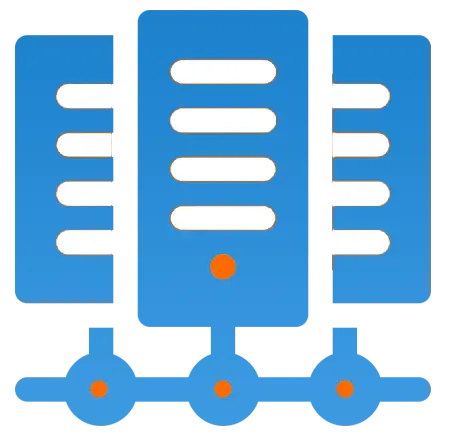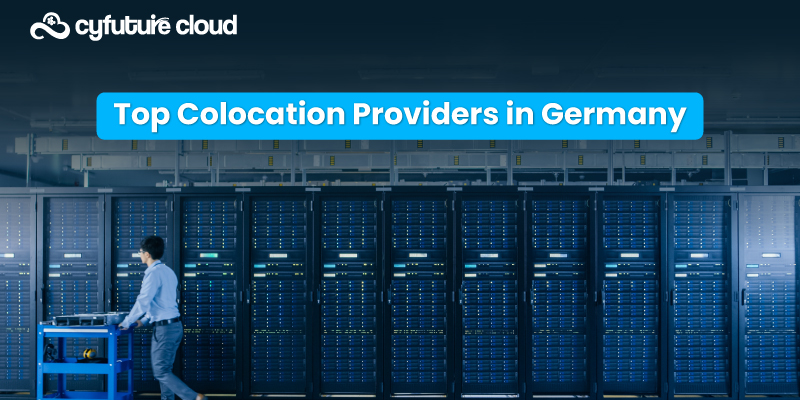Get 69% Off on Cloud Hosting : Claim Your Offer Now!
- Products
-
Compute
Compute
- Predefined TemplatesChoose from a library of predefined templates to deploy virtual machines!
- Custom TemplatesUse Cyfuture Cloud custom templates to create new VMs in a cloud computing environment
- Spot Machines/ Machines on Flex ModelAffordable compute instances suitable for batch jobs and fault-tolerant workloads.
- Shielded ComputingProtect enterprise workloads from threats like remote attacks, privilege escalation, and malicious insiders with Shielded Computing
- GPU CloudGet access to graphics processing units (GPUs) through a Cyfuture cloud infrastructure
- vAppsHost applications and services, or create a test or development environment with Cyfuture Cloud vApps, powered by VMware
- Serverless ComputingNo need to worry about provisioning or managing servers, switch to Serverless Computing with Cyfuture Cloud
- HPCHigh-Performance Computing
- BaremetalBare metal refers to a type of cloud computing service that provides access to dedicated physical servers, rather than virtualized servers.
-
Storage
Storage
- Standard StorageGet access to low-latency access to data and a high level of reliability with Cyfuture Cloud standard storage service
- Nearline StorageStore data at a lower cost without compromising on the level of availability with Nearline
- Coldline StorageStore infrequently used data at low cost with Cyfuture Cloud coldline storage
- Archival StorageStore data in a long-term, durable manner with Cyfuture Cloud archival storage service
-
Database
Database
- MS SQLStore and manage a wide range of applications with Cyfuture Cloud MS SQL
- MariaDBStore and manage data with the cloud with enhanced speed and reliability
- MongoDBNow, store and manage large amounts of data in the cloud with Cyfuture Cloud MongoDB
- Redis CacheStore and retrieve large amounts of data quickly with Cyfuture Cloud Redis Cache
-
Automation
Automation
-
Containers
Containers
- KubernetesNow deploy and manage your applications more efficiently and effectively with the Cyfuture Cloud Kubernetes service
- MicroservicesDesign a cloud application that is multilingual, easily scalable, easy to maintain and deploy, highly available, and minimizes failures using Cyfuture Cloud microservices
-
Operations
Operations
- Real-time Monitoring & Logging ServicesMonitor & track the performance of your applications with real-time monitoring & logging services offered by Cyfuture Cloud
- Infra-maintenance & OptimizationEnsure that your organization is functioning properly with Cyfuture Cloud
- Application Performance ServiceOptimize the performance of your applications over cloud with us
- Database Performance ServiceOptimize the performance of databases over the cloud with us
- Security Managed ServiceProtect your systems and data from security threats with us!
- Back-up As a ServiceStore and manage backups of data in the cloud with Cyfuture Cloud Backup as a Service
- Data Back-up & RestoreStore and manage backups of your data in the cloud with us
- Remote Back-upStore and manage backups in the cloud with remote backup service with Cyfuture Cloud
- Disaster RecoveryStore copies of your data and applications in the cloud and use them to recover in the event of a disaster with the disaster recovery service offered by us
-
Networking
Networking
- Load BalancerEnsure that applications deployed across cloud environments are available, secure, and responsive with an easy, modern approach to load balancing
- Virtual Data CenterNo need to build and maintain a physical data center. It’s time for the virtual data center
- Private LinkPrivate Link is a service offered by Cyfuture Cloud that enables businesses to securely connect their on-premises network to Cyfuture Cloud's network over a private network connection
- Private CircuitGain a high level of security and privacy with private circuits
- VPN GatewaySecurely connect your on-premises network to our network over the internet with VPN Gateway
- CDNGet high availability and performance by distributing the service spatially relative to end users with CDN
-
Media
-
Analytics
Analytics
-
Security
Security
-
Network Firewall
- DNATTranslate destination IP address when connecting from public IP address to a private IP address with DNAT
- SNATWith SNAT, allow traffic from a private network to go to the internet
- WAFProtect your applications from any malicious activity with Cyfuture Cloud WAF service
- DDoSSave your organization from DoSS attacks with Cyfuture Cloud
- IPS/ IDSMonitor and prevent your cloud-based network & infrastructure with IPS/ IDS service by Cyfuture Cloud
- Anti-Virus & Anti-MalwareProtect your cloud-based network & infrastructure with antivirus and antimalware services by Cyfuture Cloud
- Threat EmulationTest the effectiveness of cloud security system with Cyfuture Cloud threat emulation service
- SIEM & SOARMonitor and respond to security threats with SIEM & SOAR services offered by Cyfuture Cloud
- Multi-Factor AuthenticationNow provide an additional layer of security to prevent unauthorized users from accessing your cloud account, even when the password has been stolen!
- SSLSecure data transmission over web browsers with SSL service offered by Cyfuture Cloud
- Threat Detection/ Zero DayThreat detection and zero-day protection are security features that are offered by Cyfuture Cloud as a part of its security offerings
- Vulnerability AssesmentIdentify and analyze vulnerabilities and weaknesses with the Vulnerability Assessment service offered by Cyfuture Cloud
- Penetration TestingIdentify and analyze vulnerabilities and weaknesses with the Penetration Testing service offered by Cyfuture Cloud
- Cloud Key ManagementSecure storage, management, and use of cryptographic keys within a cloud environment with Cloud Key Management
- Cloud Security Posture Management serviceWith Cyfuture Cloud, you get continuous cloud security improvements and adaptations to reduce the chances of successful attacks
- Managed HSMProtect sensitive data and meet regulatory requirements for secure data storage and processing.
- Zero TrustEnsure complete security of network connections and devices over the cloud with Zero Trust Service
- IdentityManage and control access to their network resources and applications for your business with Identity service by Cyfuture Cloud
-
-
Compute
- Solutions
-
Solutions
Solutions
-
 Cloud
Hosting
Cloud
Hosting
-
 VPS
Hosting
VPS
Hosting
-
GPU Cloud
-
 Dedicated
Server
Dedicated
Server
-
 Server
Colocation
Server
Colocation
-
 Backup as a Service
Backup as a Service
-
 CDN
Network
CDN
Network
-
 Window
Cloud Hosting
Window
Cloud Hosting
-
 Linux
Cloud Hosting
Linux
Cloud Hosting
-
Managed Cloud Service
-
Storage as a Service
-
 VMware
Public Cloud
VMware
Public Cloud
-
 Multi-Cloud
Hosting
Multi-Cloud
Hosting
-
 Cloud
Server Hosting
Cloud
Server Hosting
-
 Bare
Metal Server
Bare
Metal Server
-
 Virtual
Machine
Virtual
Machine
-
 Magento
Hosting
Magento
Hosting
-
Remote Backup
-
 DevOps
DevOps
-
 Kubernetes
Kubernetes
-
 Cloud
Storage
Cloud
Storage
-
NVMe Hosting
-
 DR
as s Service
DR
as s Service
-
-
Solutions
- Marketplace
- Pricing
- Resources
- Resources
-
By Product
Use Cases
-
By Industry
- Company
-
Company
Company
-
Company
Core Characteristics of Cloud Computing: An Overview
Table of Contents
- Cloud Computing – What is It?
- Key Characteristics of Cloud Computing
- 1. Resource Pooling:
- 2. Demand-Driven Self-Service:
- 3. Easy to Maintain:
- 4. Flexibility and Scalability:
- 5. Security:
- 6. Economical:
- 7. Easily Access from Anywhere:
- 8. Flexibility:
- 9. Excellent Services:
- 10. Practical Payment Schedule:
- 11. Measurement and Reporting Service:
- 12. Automation:
- 13. Flexibility:
- 14. Access to Huge Network:
- 15. Multi-Tenancy:
- Key Characteristics of Cloud Computing
- Final Thought:
With the continuous growth of the business, increased demand for computational power, and storage of massive data, cloud computing is becoming more popular day after day. Furthermore, cloud computing aids organizations to expand and safely transfer their data from physical locations to the cloud. Consequently, it will be accessed from anywhere.
Well, numerous characteristics are associated with cloud computing. In this era of digitalization, these characteristics make cloud computing, one of the fastest-growing industries at present. The adaptability of cloud services, manifested in an ever-growing set of tools and processes, has sped up industry adoption. Today, in this blog, you will learn the top major characteristics of cloud computing. So, let’s come to the point!
Cloud Computing – What is It?
To be in easy words, cloud computing refers to the process to distribute computing resources by service providers to users through the internet. Database, storage, capabilities, application, networking, and many more are examples of computing resources.
Instead of being dependent on their own hardware or software resources, users can now access data, programs, and services hosted on remote servers from any location. You just need to pay for the cloud services that you use. It minimizes operational costs and boosts infrastructure effectiveness.
Key Characteristics of Cloud Computing
Here, we have enlightened the top 15 core characteristics of cloud computing. They are the following. So, let’s examine them!
1. Resource Pooling:
Well, it is one of the most important characteristics of cloud computing. In this, a cloud service provider distributes the set of resources to every client. The service providers share a different set of resources among several clients according to their needs.
It uses a multi-client approach to store data, processes it, and offer bandwidth-based services. The process of allocating resources in real-time administration does not compromise the client’s experience.
2. Demand-Driven Self-Service:
It is a crucial part of cloud computing. It enables the client to continuously monitor the server’s capabilities, network storage capacity, and availability. This is a fundamental aspect of cloud computing. Although a client can adjust the computer power according to his requirements.
3. Easy to Maintain:
One of the best cloud benefits is this. The servers are simple to operate, and downtime is frequently nonexistent or very little. Resources powered by cloud computing are updated frequently to increase their potential and capabilities. Updates operate more quickly than older versions and are more compatible with the devices.
4. Flexibility and Scalability:
A fundamental attribute and advantage of cloud computing is its quick scalability. The cost-effective operation of workloads that require several servers but are only needed temporarily is made possible by this cloud feature.
Such workloads are common among clients and may be managed extremely economically because of cloud computing’s swift scalability.
5. Security:
The security of data is one of the most important characteristics of cloud computing. To avoid data loss, cloud services create a replica of stored data. For instance, if someone loses their data, a replica of the data will be restored from the other server.
This feature has become handy when a file corrupts all of a sudden while several users working on it.
6. Economical:
Cloud computing also plays a vital role in minimizing the IT expenditure of an organization. In cloud computing, the clients need to pay for the space they use, to the administrator. Besides, there are no further charges that you need to pay. Hence, the administration is economical and they have allowed some free space for the clients.
7. Easily Access from Anywhere:
Working from anywhere or remotely working is also one of the main characteristics of cloud computing. It allows users to work from any location in the globe. Further, it allows users to access corporate data from their mobile devices like smartphones and laptops.
Besides, it also ensures that users can connect instantly. Employees who work remotely or live in any other location can connect can communicate with each other and do their jobs.
8. Flexibility:
The business must scale as the competition increases. Traditional hosting users will need to switch service providers. Users have more freedom when they host their data in the cloud. Scaling can be done whenever it’s convenient and doesn’t require a server restart.
Additionally, users have a variety of payment methods to pick from. As a result, businesses won’t have to spend money on resources they don’t need.
9. Excellent Services:
Users always get the greatest service thanks to cloud computing. Benefits like constant availability and extensive resources, performance, and bandwidth are required by service-level agreements. Loss of clients and a decline in popularity will follow any compromise in these services.
10. Practical Payment Schedule:
The payment structure is important since it promotes cost-saving. Prices for cloud computing choices vary because of the added capability. The payment option is simple for users to use, and it saves them time when they make numerous payments.
11. Measurement and Reporting Service:
One of the numerous characteristics of the cloud that makes it the best option for organizations is reporting services. Both cloud service providers and their clients profit from measurement and reporting services.
It enables the client and the service provider to keep track of and report on which services were used when and why. This supports ensuring optimal resource consumption and monitoring billing.
12. Automation:
Automation is one of the most important characteristics of cloud computing. Automatic installation, configuration, and maintenance of cloud service cloud computing refer to automation.
To be in easy words, it refers to the process of making the most of technology and minimizing manual efforts. The cloud environment, though, is not so easy to automate. Installation and deployment of servers, virtual machines, and a significant amount of storage are required. These resources will need constant upkeep after a successful implementation.
13. Flexibility:
Resilience in cloud computing refers to the ability of the service to resume operations right away after any interruption. The speed at which a cloud’s servers, databases, and network system can restart and recover from any loss or damage tells us how resilient it is.
The accessibility of cloud computing is another crucial aspect. The utilization of cloud resources is not constrained by location because cloud services can be accessed anywhere.
14. Access to Huge Network:
Ubiquity is a huge part of cloud computing characteristics. It allows the clients to access the cloud data or transfer those data from anywhere. To transfer the data, clients just need a device and an internet connection.
These tools are accessible online and are available across the entire organization. By keeping an eye on and ensuring different measures, such as latency, access time, data throughput, and other indicators of how consumers access cloud services and data, cloud providers can conserve that substantial network access.
15. Multi-Tenancy:
It is one of the best characteristics of cloud computing. Multi-tenancy is a software architecture concept that enables a single program instance to serve many user groups.
It means that several clients of cloud service providers share the same computing resources. Even if computing resources are shared, all data belonging to Cloud customers are kept completely private and safe.
Final Thought:
Well in this era of digitalization, cloud computing has several features. And, these features help both organizations as well as customers. Today, almost every organization requires data storage. Although the above-mentioned characteristics of cloud computing make it an ideal choice for organizations across various industries. It provides various advantages to the host, which advantages to customers or clients as well.
Recent Post

Stay Ahead of the Curve.
Join the Cloud Movement, today!
© Cyfuture, All rights reserved.
Send this to a friend

 Pricing
Calculator
Pricing
Calculator
 Power
Power
 Utilities
Utilities VMware
Private Cloud
VMware
Private Cloud VMware
on AWS
VMware
on AWS VMware
on Azure
VMware
on Azure Service
Level Agreement
Service
Level Agreement 


















